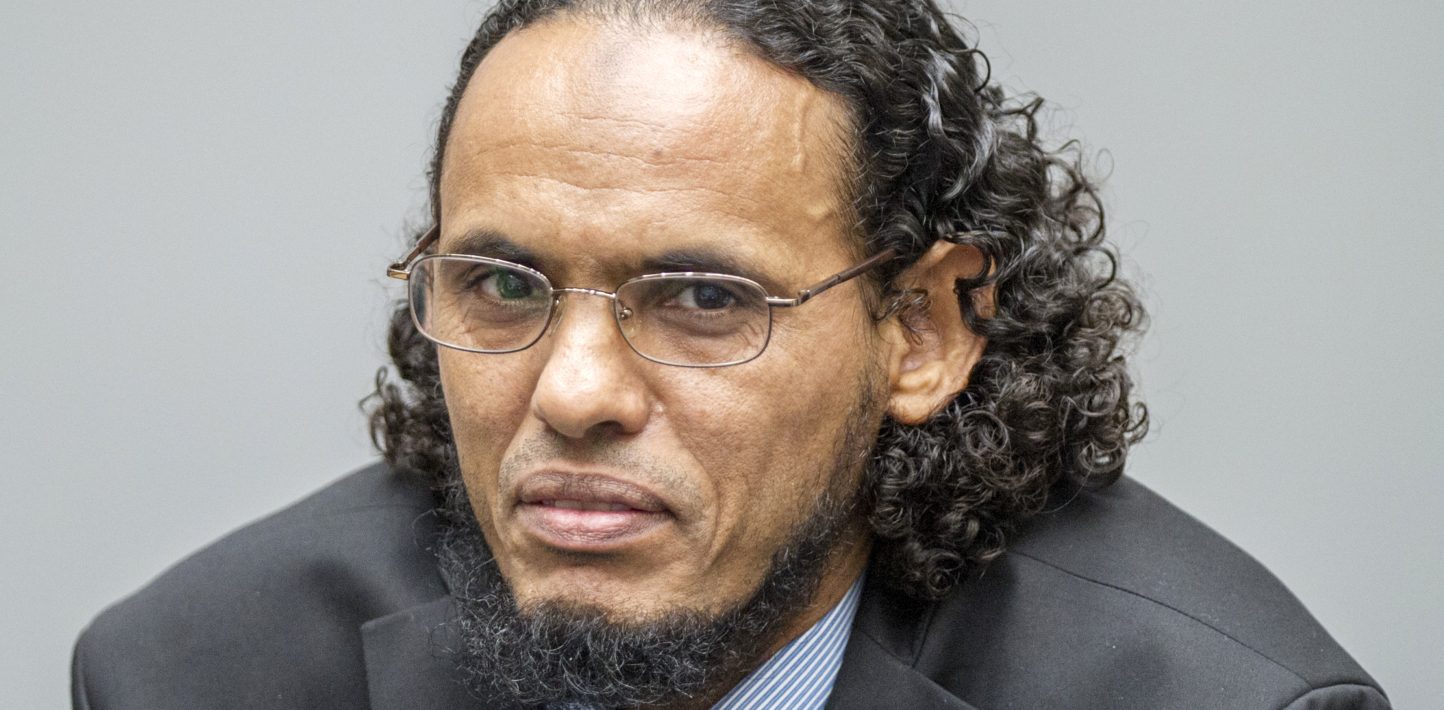Today’s International Criminal Court (ICC) conviction of Ahmad Al Faqi Al-Mahdi, a senior member of the Ansar Eddine armed group, must be the first step towards broader accountability for all crimes committed during Mali’s 2012 conflict, Amnesty International said.
This verdict is a clear recognition that attacks on religious and historical monuments can destroy the culture and identity of a population and constitute crimes under international law
Erica Bussey Amnesty International’s Senior Legal Advisor
The ICC sentenced Al-Mahdi to nine years imprisonment for intentionally directing attacks against religious buildings and historical monuments in the northern town of Timbuktu between June and July 2012. Al-Mahdi admitted his guilt to the court.
“This verdict is a clear recognition that attacks on religious and historical monuments can destroy the culture and identity of a population and constitute crimes under international law,” said Erica Bussey Amnesty International’s Senior Legal Advisor.
“This positive development should not let us lose sight of the fact that hundreds of civilians were murdered, tortured and raped during the 2012 conflict in Mali. The ICC should therefore continue to investigate crimes committed by all sides to the conflict.”
Although the ICC’s preliminary investigation found that there was a reasonable basis to believe that war crimes including murder, rape and torture had been committed in Mali since 2012, it has not issued any further arrest warrants. Domestic attempts to ensure accountability have also been limited.
Amnesty International considers that it is crucial that the ICC’s Office of the Prosecutor, domestic judicial authorities in Mali and the international community as a whole ensure accountability for all crimes under international law, including murder, enforced disappearances, rape and other sexual violence, and torture that have been committed in the country since 2012, including by government forces.
Background
The situation in Mali was referred to the ICC by the government in July 2012. The ICC commenced its investigations in January 2013, with a focus on war crimes committed in Mali since 2012. An arrest warrant for Al-Mahdi was issued on 18 September 2015, and he was arrested in Niger and transferred to The Hague on 26 September 2015. The charges against him were confirmed by a Pre-Trial Chamber on 24 March 2016. The trial opened on 22 August and eight victims participated in the proceedings.
This is the first guilty plea at the ICC. In the plea agreement, Al-Mahdi agreed not to appeal his conviction or sentence if it was within the range of 9 to 11 years.
The Malian authorities have only made very limited attempts to investigate and prosecute those responsible for serious crimes since the 2012 conflict. Moreover, in 2015, the authorities freed at least 200 detainees, including several allegedly implicated in crimes under international law during the 2012-2013 armed conflict.
The peace agreement provides for an international Commission of Inquiry to investigate crimes under international law, including war crimes, crimes against humanity, genocide and crimes of sexual violence, but it has not yet been set up.


